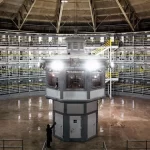|
Getting your Trinity Audio player ready... |
Mark Zuckerberg, frustrated with Meta Platforms Inc.’s shortfalls in AI, is assembling a team of experts to achieve artificial general intelligence, recruiting from a brain trust of AI researchers and engineers who’ve met with him in recent weeks at his homes in Lake Tahoe and Palo Alto.
Zuckerberg has prioritized recruiting for the secretive new team, referred to internally as a superintelligence group, according to people familiar with his plans. He has an audacious goal in mind, these people said. In his view, Meta can and should outstrip other tech companies in achieving what’s known as artificial general intelligence or AGI, the notion that machines can perform as well as humans at many tasks. Once Meta reaches that milestone, it could weave the capability into its suite of products — not just social media and communications platforms, but also a range of AI tools, including the Meta chatbot and its AI-powered Ray-Ban glasses.
Zuckerberg is building that team in tandem with a planned multi-billion dollar investment in Scale AI, which offers data services to help companies train their models. Scale AI founder Alexandr Wang is expected to join the superintelligence group after a deal is done. Bloomberg News first reported on the deal, set to become Meta’s largest external investment to date. A Meta spokesperson declined to comment.
Zuckerberg has spoken openly about making artificial intelligence a priority for his company. In the last two months, he’s gone into “founder mode,” according to people familiar with his work, who described an increasingly hands-on management style.
The CEO’s desire to micromanage the recruitment effort is driven in part by frustration over the quality of and response to Llama 4, the latest version of Meta’s large language model to power chatbots and other services.
The latest release in April proved a disappointment to Zuckerberg, who had repeatedly told Meta insiders he wanted the best AI offering — both in terms of utilization and performance — by the end of the year. His demands piled pressure on AI-focused staff working nights and weekends to achieve those goals, according to people familiar with the matter. Yet the models’ performance has been questioned both internally — by Meta’s own leadership — and externally by developers who saw them as over-promising and under-delivering, the people said.
Meta later delayed plans to release its largest model yet, known as “Behemoth,” which it had touted as superior to competing models from OpenAI, Anthropic and Google. Despite those proclamations, leadership grew concerned it didn’t sufficiently advance on previous models, the Wall Street Journal first reported.
Those missteps pushed Zuckerberg to get more involved and led to his interest in building out the new team, according to people familiar with the matter. He seeded a WhatsApp group chat among senior leaders called “Recruiting Party” to discuss potential targets for the team. Members of the chat group have been engaged in discussions at all hours of the day to identify talent.
Zuckerberg has been compiling his own list of recruits and likes to be the first point of contact during outreach. The CEO hopes that with the new bench, Meta will see improvements to its Llama models and better AI tools for voice and personalization features, the people said.
It’s not yet clear how the Superintelligence Labs group will work alongside Meta’s existing AI teams. Some employees are expected to move over to the new unit, according to people familiar with the plans.
Zuckerberg is racing against rivals like OpenAI and Alphabet Inc.’s Google to become a market leader for AI, which already underpins a major part of Meta’s advertising business. Already, Meta has invested aggressively in AI, earmarking tens of billions of dollars in capital expenditures for projects this year — and what Zuckerberg has assured would be “hundreds of billions” in years to come.
Over lunches and dinners at his California homes in the past month, Zuckerberg pitched AI researchers, infrastructure engineers, and other entrepreneurs on joining Meta’s team, according to people familiar with the plans.
He’s argued that, unlike rivals who are out raising large funding rounds, Meta’s advertising business is strong enough to finance the tens of billions of dollars needed to compete in the growing AI space. He told potential recruits that Meta has enough cash flow to fund a multi-gigawatt data center, which would give the company one of the most powerful server bases in the world, according to people familiar with his pitch.









